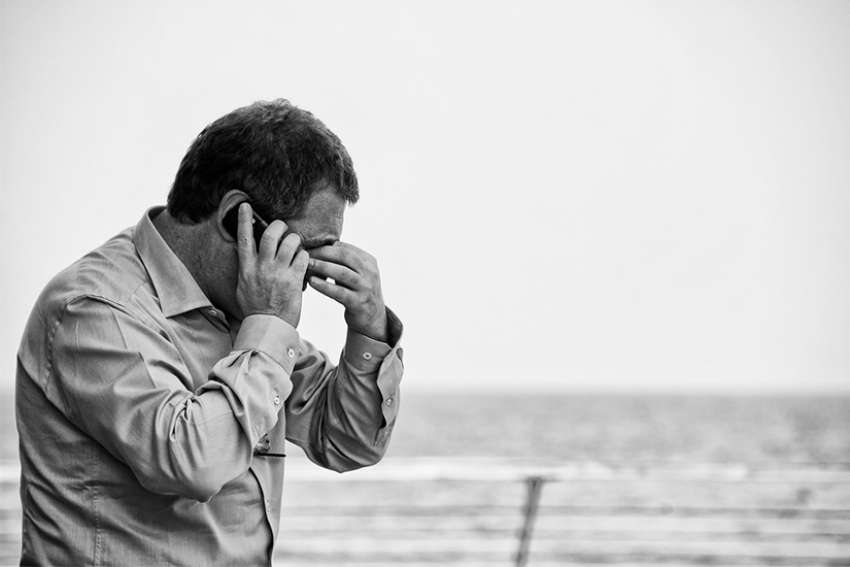Peter Stockland: We have become victims of our own overthinking
By Peter Stockland
Some years ago, I would refer a particular fussbudget friend to a spoof self-help group called Over Thinkers Anonymous.
Whenever the friend launched into extended sessions of fussbudgeting marked by repetitive second-guessing, perpetual analysis of speck of sand detail and the ever popular backward forecasting (“If only I’d done X, then Y wouldn’t have happened…”), I would offer times and locales for the nearest Over Thinkers Anonymous meeting.
As I concocted it, OTA was a 12,000-step program based on participants taking only two fraught-with-peril steps backward for every one hypothetically positive step forward.
The principle was to achieve acknowledgement that, yes, things were still going backward in a major way, but more slowly than they would have without the admittedly minor progress in the other direction.
Provided catastrophe wasn’t just around the corner, today’s kids weren’t wholly a lost generation of lazy ignoramuses, and Jupiter aligned with Mars, then peace would guide the planets and love would steer the stars. Or we’d at least be able to decide where to have lunch.
In practical terms, Over Thinkers Anonymous turned out be a joke as far as helping my fussbudget friend was concerned. I might have known it would be if I’d only thought about it more. But as a possible solution, it did open my own eyes to the way that overthinking everything — well, just about everything — has become the social pandemic of the day.
In an age of superabundance unimaginable even as fantasy in earlier times, we behave like teething puppies hiding under the living room couch and fretting over a bedroom slipper. We cower in fright that it will all go away. We snap and growl and gnash as we tear the torn apart slipper bits into even small bits.
Saul Bellow, the great Lachine, Quebec-born Nobel Prize-winning writer, once published a brilliant essay titled “There Is Simply Too Much To Think About.” Were he alive today, I suspect Bellow would amend that to include a synonym for fretting as well.
Five-minute immersion in social media exposes us to what would once have a been about a century’s worth of sturm und drang about an almost inconceivable list of cares, concerns, corrections, warnings, alarms, doubts, regrets, objections and kvetches. Yet social media is merely the mirror in which we worry about our warts. Something in the human heart, something in our character, has changed profoundly to cultivate a culture where in angst alone we trust. We have become what Bellow mocked as “explainers,” people like the character Margotte in Mr. Sammler’s Planet who must constantly “communicate” because they cannot stop overthinking.
What has truly been lost, it seems, is not just the ear or the attention of the person under intellectual bombardment. It’s the spiritual attention span vital to seeing the infinite abstractions of a distracted world in proper perspective. It’s recognizing that our thoughts to, for and about the world are subtractions from time that could be put to use directing our minds to God. It’s about, in short, the loss of prayer. Or at the very least, it’s about the loss of a particular understanding of prayer.
Not long ago, Image journal in Seattle published an essay arguing for a return to the ancient approach of seeing prayer as overhearing God speaking to Himself. Given that God created us, and knows us entirely, anything we can say to Him ultimately originates through Him. Prayer that comes from us in prayer, then, is purely a reflection of what God has already spoken.
Think about this and you begin to understand the meaning of “in the beginning was the Word.” You begin to see why all the words spilling all the thoughts since our existence began mean almost nothing by comparison.
It doesn’t mean we must become obscurantist mutes or lapse into anonymous monkish silence. It means, rather, that there is a simple step we can take to stop overthinking everything and to let God, the meaning of all things, speak to Himself through us.
(Stockland is publisher of Convivium.ca and a senior fellow with Cardus.)
Tagged under:
Please support The Catholic Register
Unlike many media companies, The Catholic Register has never charged readers for access to the news and information on our website. We want to keep our award-winning journalism as widely available as possible. But we need your help.
For more than 125 years, The Register has been a trusted source of faith-based journalism. By making even a small donation you help ensure our future as an important voice in the Catholic Church. If you support the mission of Catholic journalism, please donate today. Thank you.
DONATE

